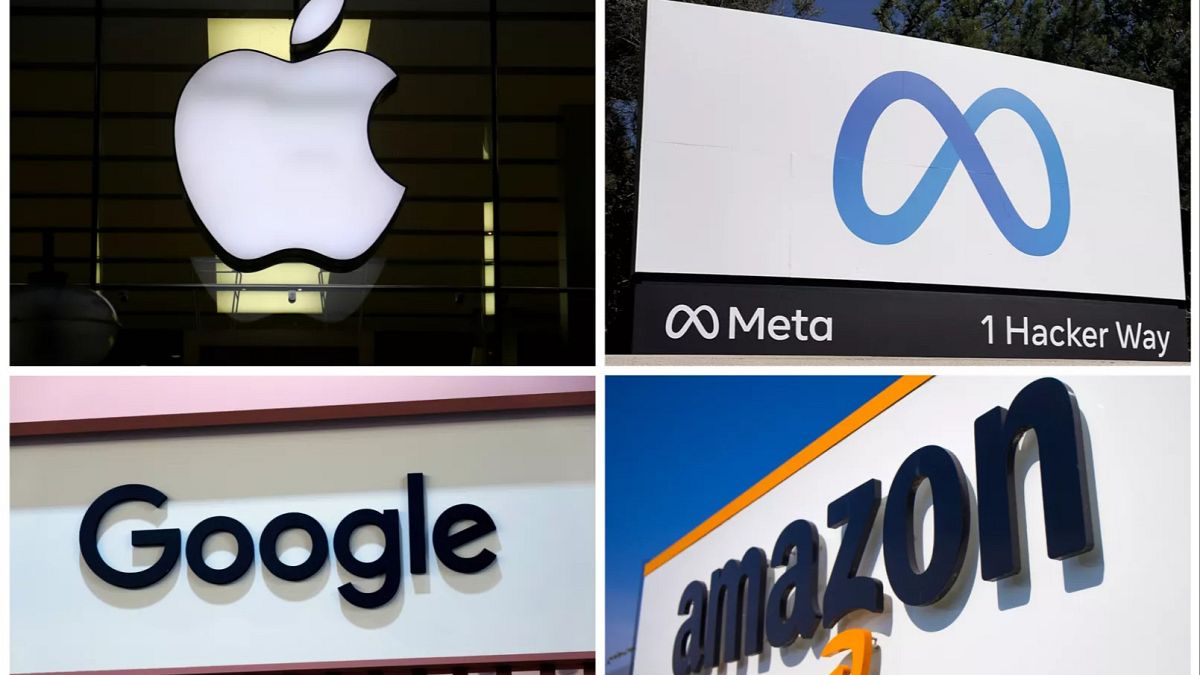Human rights group Amnesty International is urging governments worldwide to break up with Big Tech, arguing that “the concentration of power” of a few companies has profound implications on privacy, nondiscrimination, and access to information.
A report published on Thursday, called ‘breaking up with Big Tech,’ by the group took aim at Google, Meta, Microsoft, Amazon, and Apple. It urged governments to “rein in Big Tech and put people’s rights first”.
The report comes as tech relations between the United States and Europe turn fragile after US President Donald Trump threatened to impose “substantial” additional tariffs on countries that implement legislation targeting American tech companies.
“These few companies act as digital landlords who determine the shape and form of our online interaction,” said Hannah Storey, an advocacy and policy adviser on technology and human rights at Amnesty.
The report also argued that artificial intelligence (AI) is the “next phase” in tech companies’ “dominance”.
“Big Tech companies are rapidly building and deploying AI systems, prioritising speed and scale over fairness and accuracy,” the report said, adding that the biased data AI models are trained on is harmful for users and marginalised communities. It said they could be more vulnerable to harms stemming from algorithmic profiling and biometric mass surveillance.
The Amnesty report alleged that Google and Meta profit from harvesting and monetising vast quantities of our personal data and because of the companies’ market dominance, users have little meaningful choice or control over how their data is used.
“The more data they collect, the more dominant they become, and the harder it is for competitors to challenge their position,” the report added.
Google’s YouTube and Meta’s Facebook and Instagram also use algorithms “optimised for engagement and profit,” which emphasise content meant to provoke strong emotions and outrage from users, the report said.
Amnesty alleged that Facebook was instrumental in the Tigray war in Ethiopia (2020-2022), saying that Meta’s algorithms amplified content that incited hatred and violence against Tigrayans as government officials and pro-government activists used Facebook to “dehumanise the entire ethnic group”.
Amnesty also alleged in 2022 that Facebook prompted violence in the ethnic cleansing of the Rohingya in Myanmar in 2017.
Meta responded to Amnesty, saying that the report contained “multiple inaccurate claims,” including the one on Tigray, adding that it takes its role “seriously in keeping abuse off our services” and that “privacy is at the core of everything” the company does.
Apple, Amazon, and Microsoft were also highlighted in the report for their market dominance.
Microsoft responded that it is “firmly committed to respecting human rights,” while Apple and Amazon did not respond to Amnesty’s allegations.
Euronews Next has reached out to the five companies for their reaction to the report.
The recommendations:
Amnesty made a set of recommendations to policymakers, including states and competition authorities, to use competition laws as part of their “human rights toolbox”.
It also urged states to investigate Big Tech for human rights harms, break up companies that are found guilty of doing so, and block mergers and acquisitions that risk harming human rights.
As for AI, the report said the generative AI sector should be investigated to establish human rights risks and impacts from anticompetitive practices. However, this may be difficult as AI companies notoriously do not share the sources of the data they use to train their models.
Whether the European Union will respond to Amnesty’s requests will stir anticipation, as calls grow for EU leaders to respond to the US tariff threat on governments that regulate American tech companies.

